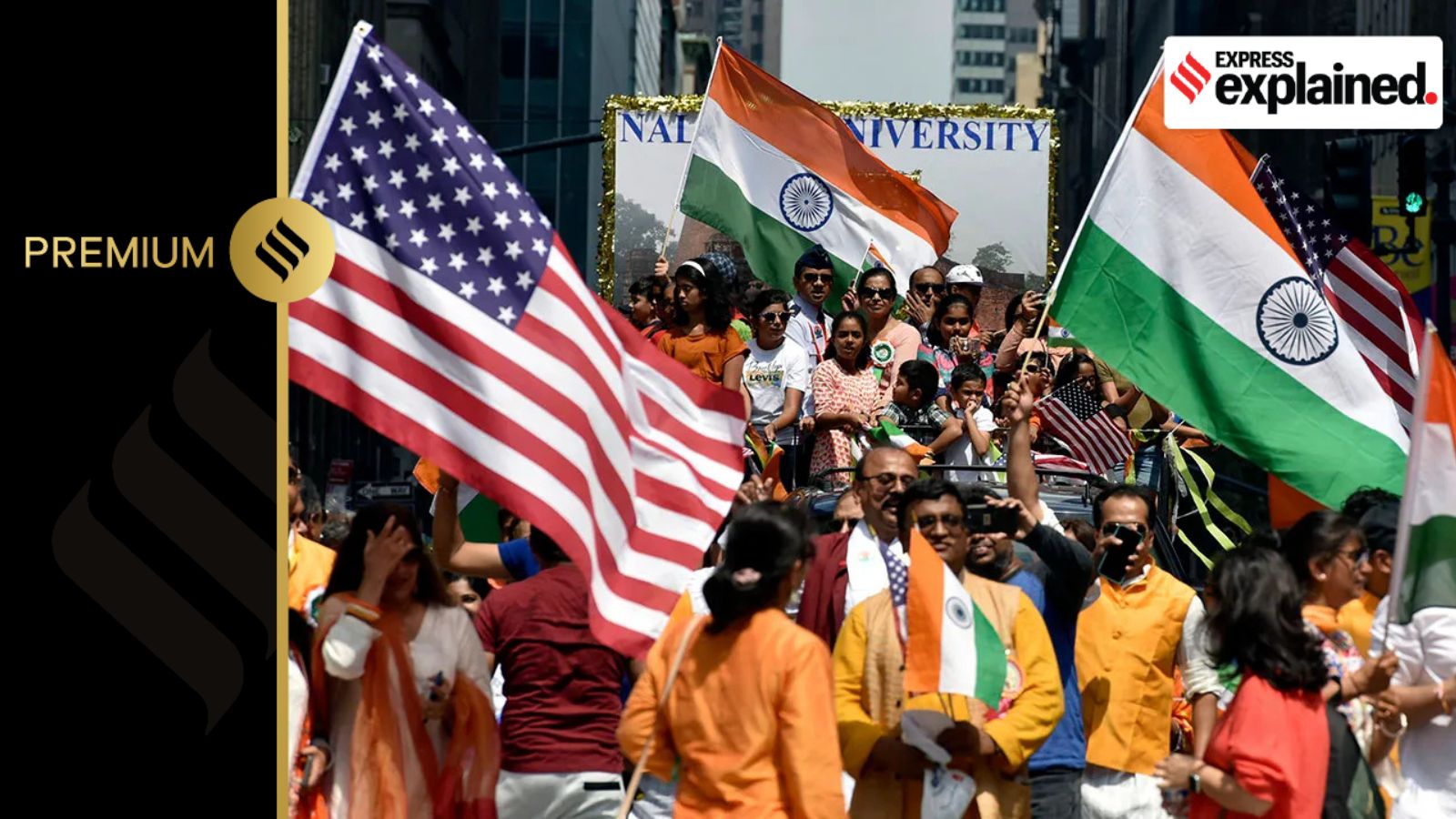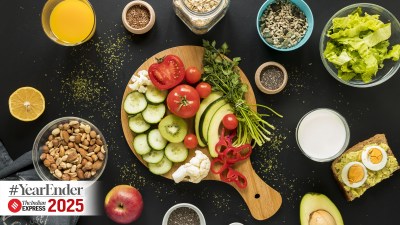How the small but rich Indian American community votes — and why
With a population of approximately 5.2 million, Indian Americans are the second largest immigrant community in the United States, behind only Mexican Americans.
 Both Democrats and Republicans have wooed Indian Americans for election funding. Indian Americans are less than 2% of America’s population, but their median annual household income of approximately $153,000 (about Rs 1.3 crore) is more than double that of the country as a whole. (File)
Both Democrats and Republicans have wooed Indian Americans for election funding. Indian Americans are less than 2% of America’s population, but their median annual household income of approximately $153,000 (about Rs 1.3 crore) is more than double that of the country as a whole. (File)Indian Americans remain deeply connected to the Democratic Party but have been less so since 2020, according to the results of a new Carnegie survey published this week. This is despite Kamala Harris being the Democratic nominee, with a chance to become the first person of Indian origin to enter the Oval Office.
To what extent does the Indian American vote matter in the US presidential election?
With a population of approximately 5.2 million, Indian Americans are the second largest immigrant community in the United States, behind only Mexican Americans.
Around 2.6 million Indian Americans are eligible to vote, according to the Indian American Attitudes Survey (IAAS) 2024, published by the Carnegie Endowment for International Peace. These are “high propensity” voters, and an astonishing 96% of Indian Americans registered to vote will likely end up voting in the 2024 election, according to IAAS data.
Crucially, the “Asian Indian” ethnic group (including persons from Pakistan and Bangladesh) has a population of more than 700,000 in seven battleground states, according to the Asian and Pacific Islander American Vote (APIAVote), a non-profit research group and civic engagement advocacy. Of these 350,000-450,000 Asian Indians are eligible to vote.
The seven battlegrounds — Arizona, Georgia, Michigan, Nevada, North Carolina, Pennsylvania, and Wisconsin — are where the race for the presidency is expected to be decided. Several metropolitan areas in these swing states have large concentrations of Indian Americans — for example, in Atlanta, Georgia; Philadelphia, Pennsylvania; Raleigh, North Carolina; and Detroit, Michigan — who can potentially swing a tight race one way or the other.
Notably, in quite a few states, the community’s population is larger than the margin of victory in the 2020 presidential election.
Both Democrats and Republicans have also wooed Indian Americans for election funding. Indian Americans are less than 2% of America’s population, but their median annual household income of approximately $153,000 (about Rs 1.3 crore) is more than double that of the country as a whole.
Who are Indian Americans backing in this election?
Roughly 47% respondents in IAAS 2024 identified as Democrats, down from 56% in the 2020 edition of the survey. The percentage of respondents identifying as Independents rose from 22% to 26%, and those identifying as Republican rose from 15% to 21%.
The survey found that 57% of respondents lean Democratic, 27% lean Republican, and 14% are “true” Independents. Using this metric, the share of Democrats has declined to 57% from 66% in 2020, and that of Republicans has risen to 27% from 18%.
This decline in support for the Democratic Party among Indian Americans may translate into voting behaviour as well.
According to the 2024 IAAS, 60% of Indian American citizens planned to vote for Harris, and 31% for Donald Trump. In 2020, 68% of Indian Americans had said they intended to vote for Joe Biden, while 22% had said that they would vote for Trump.
What explains the voting preferences of Indian Americans?
Indian American support for Democrats has been traditionally based on the perception that Republicans are intolerant towards minorities, and too influenced by Christian evangelicalism (2020 IAAS). Among those who vote Republican, the perceived weakness of Democrats in handling the economy and curbing illegal immigration, and the perception that the party is too left-wing and focused on “identity politics” have been the primary drivers of support.
The 2020 IAAS did not find a notable difference in voting intention among men and women; this year, however, a stark gender gap has emerged. About 67% of Indian American women respondents in IAAS 2024 said they intended to vote for Harris, and only 22% said Trump; these numbers for male Indian Americans were 53% and 39% respectively.
One possible explanation for this trend is a divergence in issues prioritised by men and women in the community, a trend that is seen across the American population. So, women tend to support Harris for her position on abortion rights, while strong borders and a more liberal tax regime — core Trump promises — resonate more with men.
Milan Vaishnav, a co-author of the IAAS along with Sumitra Badrinathan and Devesh Kapur, told Al Jazeera that “there is also a growing scepticism among some Indian American men voting for a female president” which is creating a “new cleavage” in the community.
Lastly, it seems that Harris’s Indian heritage has had limited impact on Indian American voters. Many Indian Americans do not identify with the Vice President who has preferred to play up her Black heritage (from her father’s side) more than her Indian one. At least 12% respondents in the 2024 IAAS said that their main reason for opposing Harris was that she “identifies more with her Black roots”.
Rohit Chopra of the Center for South Asia at Stanford University told Al Jazeera: “There is actually more enthusiasm for someone like Tulsi Gabbard or Usha Vance than for Harris… In the American mainstream, Harris is perceived as African American.”
- 01
- 02
- 03
- 04
- 05






































